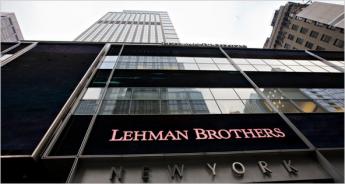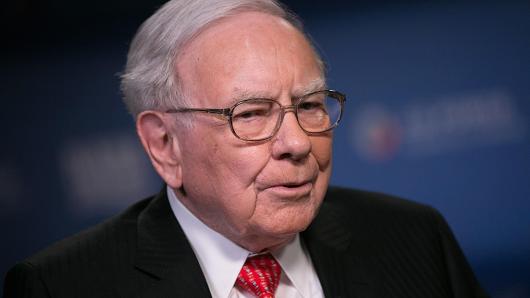Related Topics
Investing, Philadelphia Style
Land ownership once was the only practical form of savings, until banking matured in the mid-19th century. Philadelphia took an early lead in what is now called investment and still defines a certain style of it.
American Finance After Robert Morris
Robert Morris can be fairly said to have made the American Revolution possible.
Personal Finance
The rules of financial health are simple, but remarkably hard to follow. Be frugal in order to save, use your savings to buy the whole market not parts of it, if this system ain't broke, don't fix it. And don't underestimate your longevity.
Dislocations: Financial and Fundamental
The crash of 2007 was more than a bank panic. Thirty years of excessive borrowing had reached a point where something was certain to topple it. Alan Greenspan deplored "irrational exuberance" in 1996, but only in 2007 did everybody try to get out the door at the same time. The crash announced the switch to deleveraging, it did not cause it.
Whither, Federal Reserve? (2)After Our Crash
Whither, Federal Reserve? (2)
Financial Institutions of the Future
Things which normally dominate newspaper front pages, like presidential elections and World Series baseball, are now found back among the brassiere ads -- displaced by the stock market, credit market, banking and investment crisis of 2008. However, like the wake of a ship at sea, the past could be pointing to the future. Contemplate all the mighty financial institutions which have simply vanished.
It may even be trivial to say that Lehman Brothers and Bear, Stearns have disappeared. The fact is every investment bank has disappeared.

|
| Lehman Brothers |
And that's not all by a long shot. Savings and Loans have disappeared. Small commercial banks, and even most of the pretty big ones have disappeared. We may soon be left with half a dozen major banks and no lesser ones. Commission-based stock brokerage is now a rarity. Insurance? Well, the longevity increase of thirty years over the past century gave life insurance an enormous unearned windfall; when that flattens out, will such institutions still prosper? Individual corporate stocks are quickly vanishing into the homogenized soup of index funds, just as the securitized debt was digesting home mortgages before the current uproar. The ranks of stock analysts are thinning out; it no longer matters as much if they have a conflict of interest with nonexistent investment banks and stock brokers. All of this disappearance of institutions is in the recent past, and it mostly isn't coming back. Perhaps hedge funds and private equity companies will take over, but it is really too soon to say if they will survive, either.

|
| Credit Cards |
Credit cards have been overused and abused; that can be corrected. But the credit card system is supported by exorbitant fees charged to participating merchants; the card industry could easily disappear if the merchants devise a way to escape this private taxation; merchants universally wish to do so. The currency version of money is trying to disappear as fast as practical ways can be devised to measure value and transactions electronically. The remorseless pressure behind reducing all transactions to electronic form is created by the greatly reduced cost of it. And that pressure is magnified by electronically speeding up transactions; the faster money turns over, the more its virtual size increases. The converse, of course, is that a slow-down reduces its size. Like a giant tuna, the money supply dies of lack of oxygen if it slows down.
It can be seen in retrospect that banks are dying because everybody else stole their products by providing cheaper alternatives, mostly with computers. In the process, the national economy gets more uniform, less dependent on local agencies. Something of value has been lost, of course, particularly the local assessment of the capabilities and requirements of local customers; somehow, that seems to be expendable. But one thing, perhaps two, cannot be dispensed with.

|
| Warren Buffett |
For fifty years, we have grown accustomed to the idea that the electronic records of our institutions are accurate. That's definitely not so. Even a reliable firm makes a myriad of errors in its many transactions, catches them with redundancy and cross-checks, and presents the cleaned-up product once a month or maybe even once a day. But even though the illusion of flawlessness is maintained for the customer as much as humanly possible, it is not inherently flawless. Systemic breakdowns will always expose uncorrected flaws caught in the process, while disincentives are created by this one-sided system to spend money perfecting and refining its quality control. It's better than the old manual systems, of course, but its flaws are constantly exposed by the remorseless external pressure to do things faster, in bigger volume, in greater complexity. We approach the point where every individual needs to maintain a duplicate computer system to verify his accounts. Individual telephone bills, for example, require the aid of a computer to explain what another computer produced, brokerage transactions need computerized counterparty challenge to expose hidden fees and costs. We all know how lack of transparency brought securitized mortgages to their knees. We will soon learn that the meaning of credit default swaps defies even expert comprehension. The mysteries of university tuition discounts, hospital insurance, and even supermarket discounts cry out for safeguards to generate transparency. It may be true that even billionaires like Warren Buffett do not bother to check the accuracy of all accounts presented to them, trusting the fairness of the counterparty. But that does not contradict the need for balance. Institutions of independent public accounting are surely going to make an appearance in the future, telling people what they have and what they are paying for.
The other component which seems to be missing in our transaction system is a well-developed and widely available profession of financial advisors, equipped with electronic tools to provide their badly needed services affordably and accurately. Not only do agents and advisers need some tools, but they also need the political power to force high-handed vendor systems to permit universal customer verifications; the hooks and portals to their private systems need to be developed to make this system workable, and that will not be willingly forthcoming. But they must be provided because any independent advisor/auditors need to be subject to constant reverse-confirmation if we are to escape creating a gigantic imperfect-agency problem. But it always remains that a vendor is not an agent of the customer; his ultimate duty is only to provide an arms-length transaction with transparency. It is the customer's duty to secure his own verification system. When that occurs, it will become part of the third party duty to consent to safeguards against his own imperfect agency. But that's for later. At the moment, independent auditors of the sort needed, scarcely exist.
Much can be gained by searching to correct the flaws of the past whose significance is suddenly apparent. With a stroke of genius, the 2008 reforms of the Bush administration offered a government guarantee of safety for bank accounts which pay no interest. The light finally dawned that businesses use banks for settling up accounts and are more or less indifferent to the interest paid on deposits. When there is a bank panic or a run on a bank, deposits are shifted from bank accounts to Treasury bills in order to find safety; that's now unnecessary. If a bank account pays no less interest than a Treasury bill and is just as safe, why move it? Under the traditional system, deposits seeking safety depleted the load capacity of the bank and erected a barrier to recovery from the slump that often caused the problem. Why didn't we think of this before?
One of the sources of panic in 2008 was the enormous size of credit default swaps, several times larger than the entire American stock market, many times larger than the national debt. How could we allow such a vast over-insurance to occur? But as some appreciation of a large amount of credit swapping with foreign nations began to grow, things calmed down. If that should unravel the mystery, it is certainly far easier to determine the proportion of international swapping than to set up detailed accounting reports for $60 trillion of default insurance, particularly when the record-keeping intermediaries suddenly go bankrupt.

|
| Alan Greenspan |
As soon as the calamity of mortgage-backed securities made its appearance, hands were wrung that originating banks were not required to retain a piece of the mortgage. It seems sensible to impose this requirement on the only party in the chain with the opportunity to evaluate and screen the risks, face to face. So, we can probably expect legislation with the effect of requiring originating institutions to retain "a piece of the action". The principle may need to be extended into other areas, as well. Investment banks until fairly recently were partnerships, not corporations. The capital of an investment bank was supplied from the personal resources of the partners, who usually retired at quite an early age rather than retain big risks without actively coping with the constant pressures of hands-on oversight. Investment banks found they could not raise enough capital from rich partners who were constantly tempted to cash out, so they incorporated and sold stock to the general public. The consequence was the managers were placed in the position of taking big risks with other people's money, and able to pay themselves huge salaries without the constant snooping of rich partners at the next desk. For the time being, investment banking has been totally absorbed into other institutions, but the culture shock of mixing risk takers with risk avoiders will surely lead to something else. Like originating banks with mortgages, the originators of IPOs need to acquire some personal risk of their own, because their essential innovations will always race ahead of the imagination of underpaid plodding regulators. Instead of making a game of outwitting the regulators, investment banking must place much more reliance on the examples within their midst, of rich young kids turning themselves into paupers by assuming the wrong risks.
While we are wallowing in the idea of reconfiguring world finance to avoid the mistakes of the past, some thought should be given to goals. Alan Greenspan was able to win every argument with his reputation of guiding the economy through eighteen years without a major recession. Now that we have resigned ourselves to a return of the business cycle, maybe we should ask whether it is wise to go eighteen years, or even five years, without a correction. Some of this has to do with election cycles, so it isn't easy. But perhaps we have learned that perpetual prosperity is a mirage, small frequent readjustments are better.
Originally published: Monday, October 13, 2008; most-recently modified: Sunday, July 21, 2019
| Posted by: G4 | Oct 22, 2008 3:40 PM |